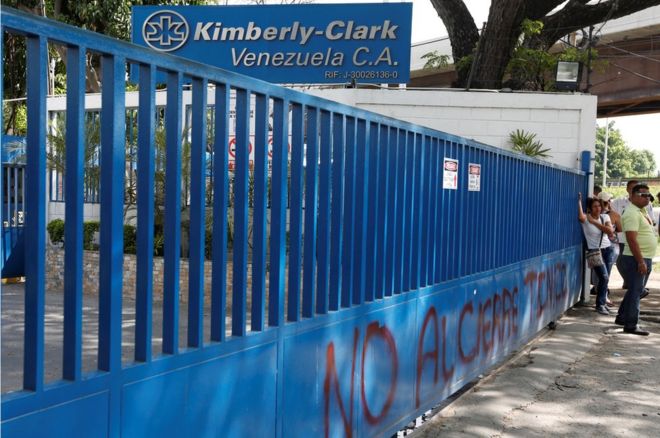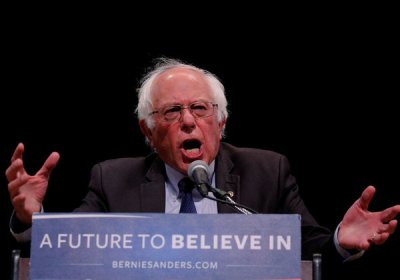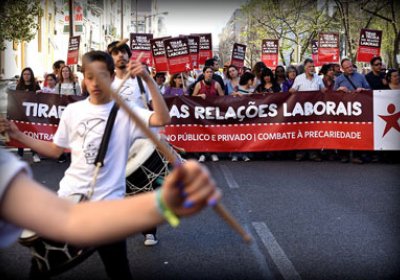 Members of the Merida communal council distributing food. Photo by Tamara Pearson.
It's been three years now of food shortages, inflation, and queues in Venezuela, and the millions of people involved in community and movement organizing have been the most affected. But they've also defied right-wing and general expectations, and even perhaps the expectations of the Maduro government, and have become stronger and better organized as a result of the hardships.
Members of the Merida communal council distributing food. Photo by Tamara Pearson.
It's been three years now of food shortages, inflation, and queues in Venezuela, and the millions of people involved in community and movement organizing have been the most affected. But they've also defied right-wing and general expectations, and even perhaps the expectations of the Maduro government, and have become stronger and better organized as a result of the hardships.
Healthcare
 Members of the Merida communal council distributing food. Photo by Tamara Pearson.
It's been three years now of food shortages, inflation, and queues in Venezuela, and the millions of people involved in community and movement organizing have been the most affected. But they've also defied right-wing and general expectations, and even perhaps the expectations of the Maduro government, and have become stronger and better organized as a result of the hardships.
Members of the Merida communal council distributing food. Photo by Tamara Pearson.
It's been three years now of food shortages, inflation, and queues in Venezuela, and the millions of people involved in community and movement organizing have been the most affected. But they've also defied right-wing and general expectations, and even perhaps the expectations of the Maduro government, and have become stronger and better organized as a result of the hardships.
 Graffiti on the Kimberly Clark Corporation factory gates reads: "No to the closure".
Graffiti on the Kimberly Clark Corporation factory gates reads: "No to the closure".
The victory of the campaign for Britain to leave the European Union (“Brexit”) in the June 23 referendum was the result of — and is intensifying — a huge right-wing anti-immigration campaign.
The article below was published by Tony Norfield on his Economics of Imperialism blog in the lead up to the June 23. It looks at the impact of British imperialism on all sides of the 'Brexit' debate.
The vast majority of British Labour MPs — 81% — and their accomplices in the country's liberal media are attempting a coup against Labour leader Jeremy Corbyn.
The veteran socialist MP was elected by Labour's members only nine months ago with the largest mandate ever won.
He won because he had set himself apart from other Labour politicians throughout his decades in office by his commitment to working class interests — and especially by voting against the Tory's attack on the poor last year while 184 Labour MPs (88%) abstained.
"The Coalition government's plan is not only to privatise Medicare, but to destroy it as a universal, national healthcare system," Peter Boyle, the Socialist Alliance candidate for the seat of Sydney, said on July 1. "The plan is based on a form of 'creeping privatisation,' together with undermining its coverage of the majority of community health services around the country."
Speaking to his supporters in a live web video address on June 17, Democratic presidential candidate Senator Bernie Sanders insisted that despite his campaign failing to defeat Democrat establishment figure Hillary Clinton, the struggle for a political revolution must continue.
Nurses at Victoria's Thomas Embling psychiatric hospital walked off the job for two hours on June 14 because of safety concerns.
The Health and Community Services Union said there had been 100 incidents at the hospital in the past three months, including one in which four people were injured.
Thomas Embling has 116 beds and most patients are transferred from the prison system or ordered by the courts to undergo psychiatric assessment or care. It has housed some of Victoria's most dangerous psychiatric patients, including Masa Vukotic’s killer Sean Price.
 I just returned to the United States from Rio de Janeiro, where I was researching a story on the Olympics in August for The Nation.
People spoke to me about the displacement and police violence that are accompanying the games. Yet one of the hottest points of discussion emerged from outside the country: a call to move, or at least postpone, the Olympics to prevent the global expansion of the Zika virus, currently exploding in Rio.
I just returned to the United States from Rio de Janeiro, where I was researching a story on the Olympics in August for The Nation.
People spoke to me about the displacement and police violence that are accompanying the games. Yet one of the hottest points of discussion emerged from outside the country: a call to move, or at least postpone, the Olympics to prevent the global expansion of the Zika virus, currently exploding in Rio.
The three remaining presidential candidates — Republican candidate Donald Trump, and Democratic contenders Hillary Clinton and Bernie Sanders — have all come out against the Trans-Pacific Partnership (TPP) agreement in varying degrees.
The TPP, a “free trade agreement” involving 16 Pacific Rim nations (including Australia), is an undisguised corporate power grab. However, all candidates in the US presidential election stress a reactionary argument against it.
 A community assembly as part of a communal council in Caracas. Photo by Rachael Boothroyd Rojas/Venezuela Analysis.
Leading Marxist author Michael Lebowitz spent six years (2004-2010) in Venezuela working as a director of the program for Transformative Practice and Human Development at the Miranda International Centre (CIM) in Caracas. There, he had the chance to take part in the building of socialism for the 21st century.
A community assembly as part of a communal council in Caracas. Photo by Rachael Boothroyd Rojas/Venezuela Analysis.
Leading Marxist author Michael Lebowitz spent six years (2004-2010) in Venezuela working as a director of the program for Transformative Practice and Human Development at the Miranda International Centre (CIM) in Caracas. There, he had the chance to take part in the building of socialism for the 21st century.
Portuguese politics is in limbo. It has been since elections last October failed to give any party an outright majority.
The Socialist Party (PS) was eventually able to form a minority government after forming an agreement with forces to its left: the Left Bloc, the Portuguese Communist Party and the Greens.
The good news is that this limbo, the thin ice on which this agreement is skating, also presents an opportunity for the left to engage in clear and clean politics with room for actual negotiation.
- Previous page
- Page 48
- Next page







